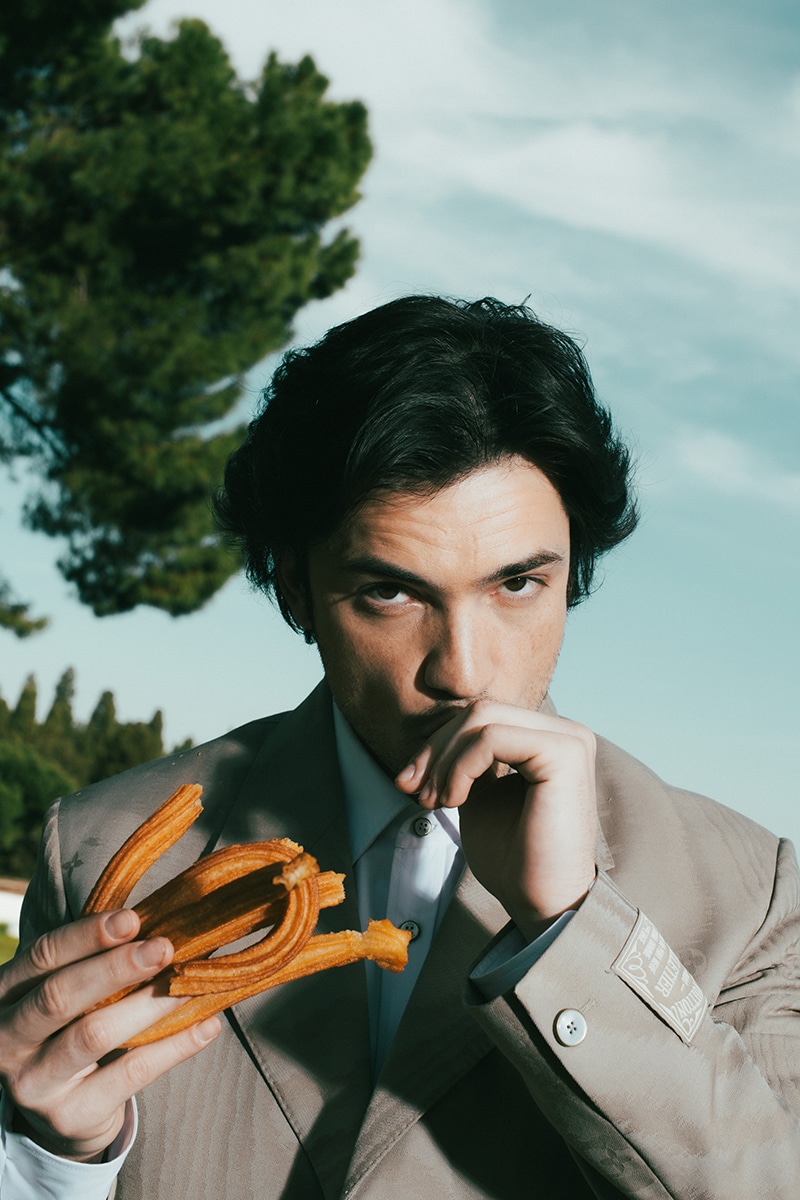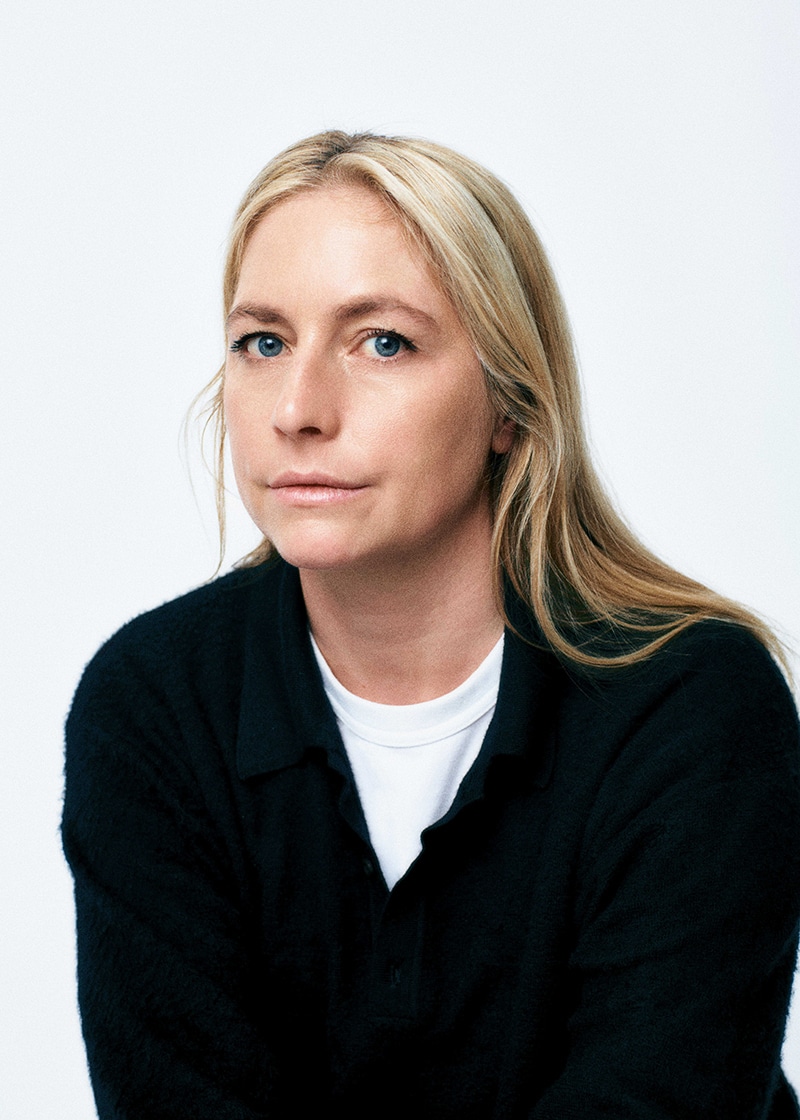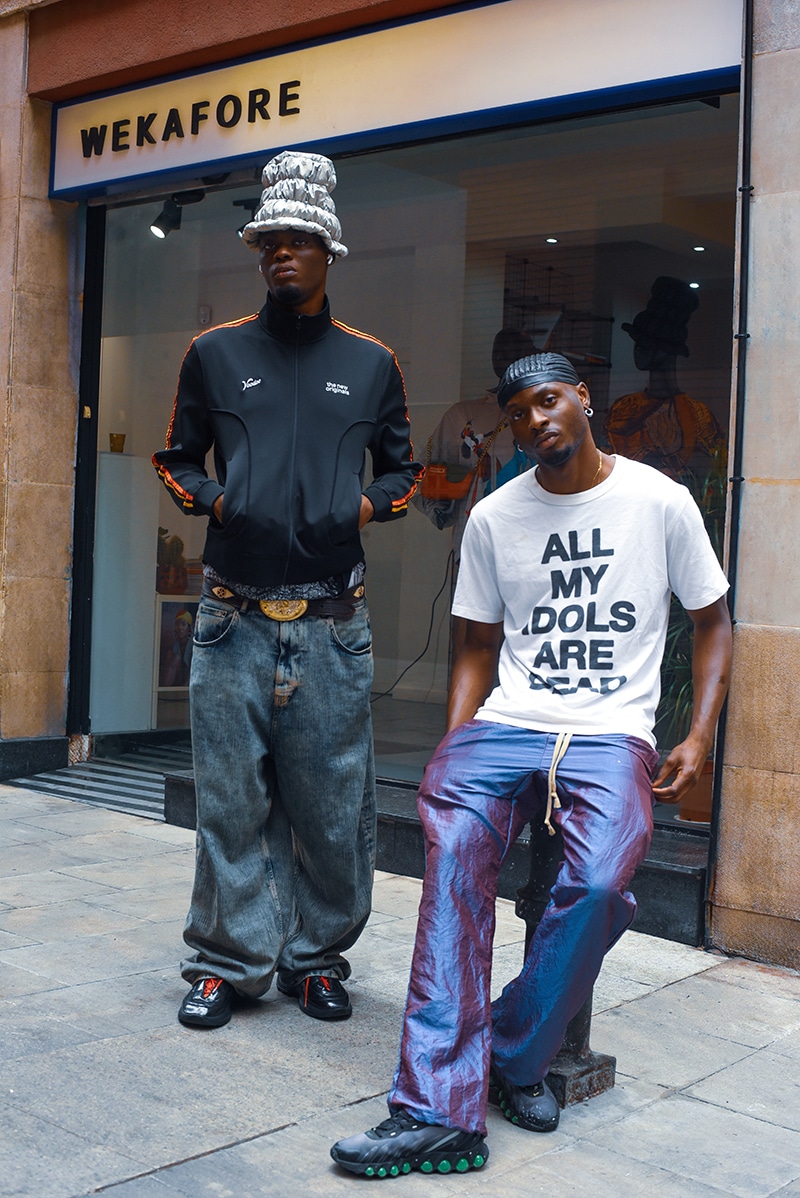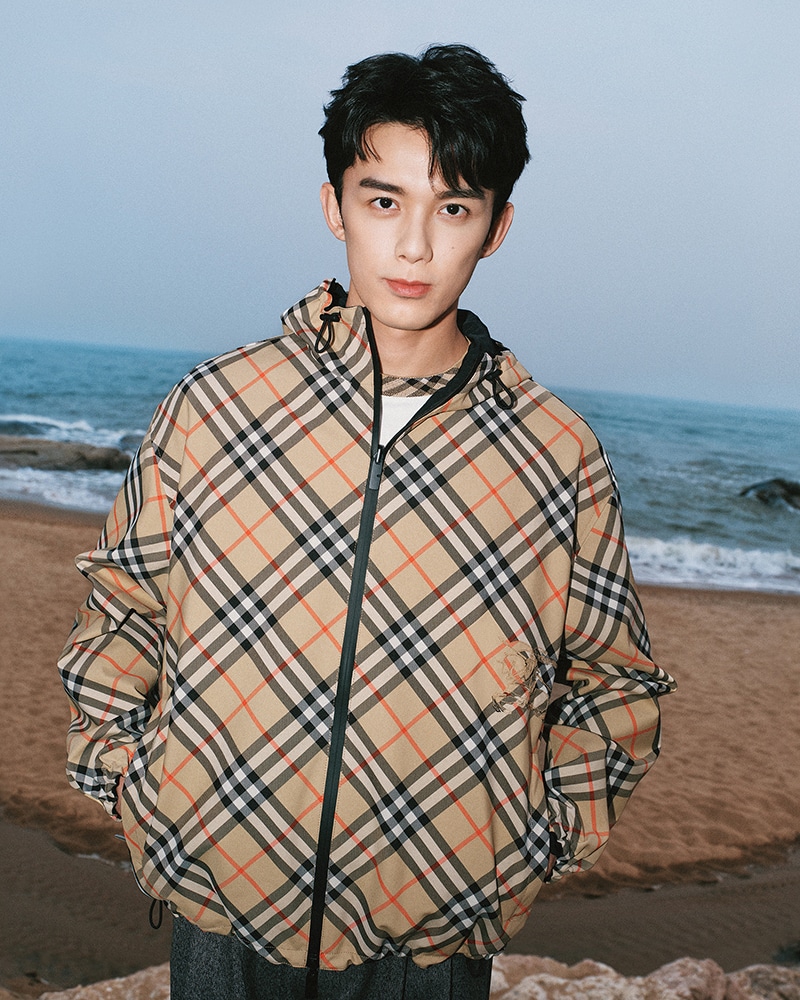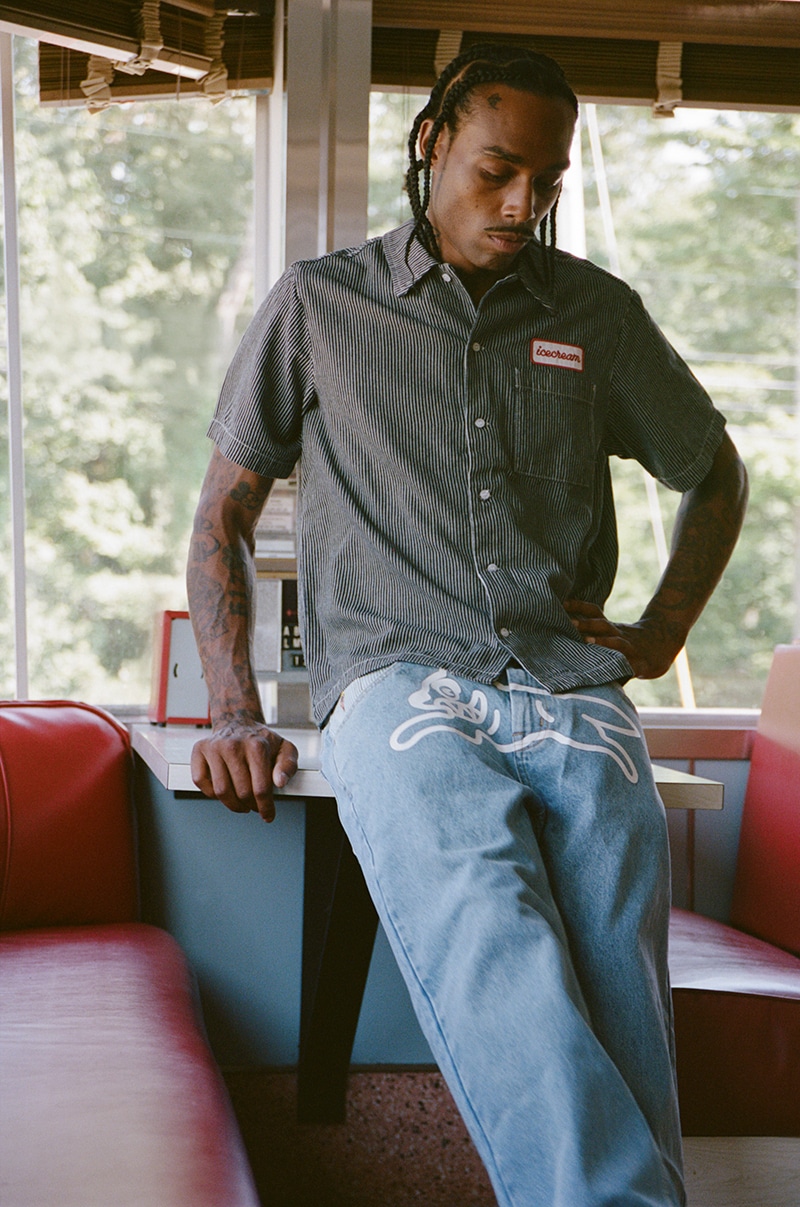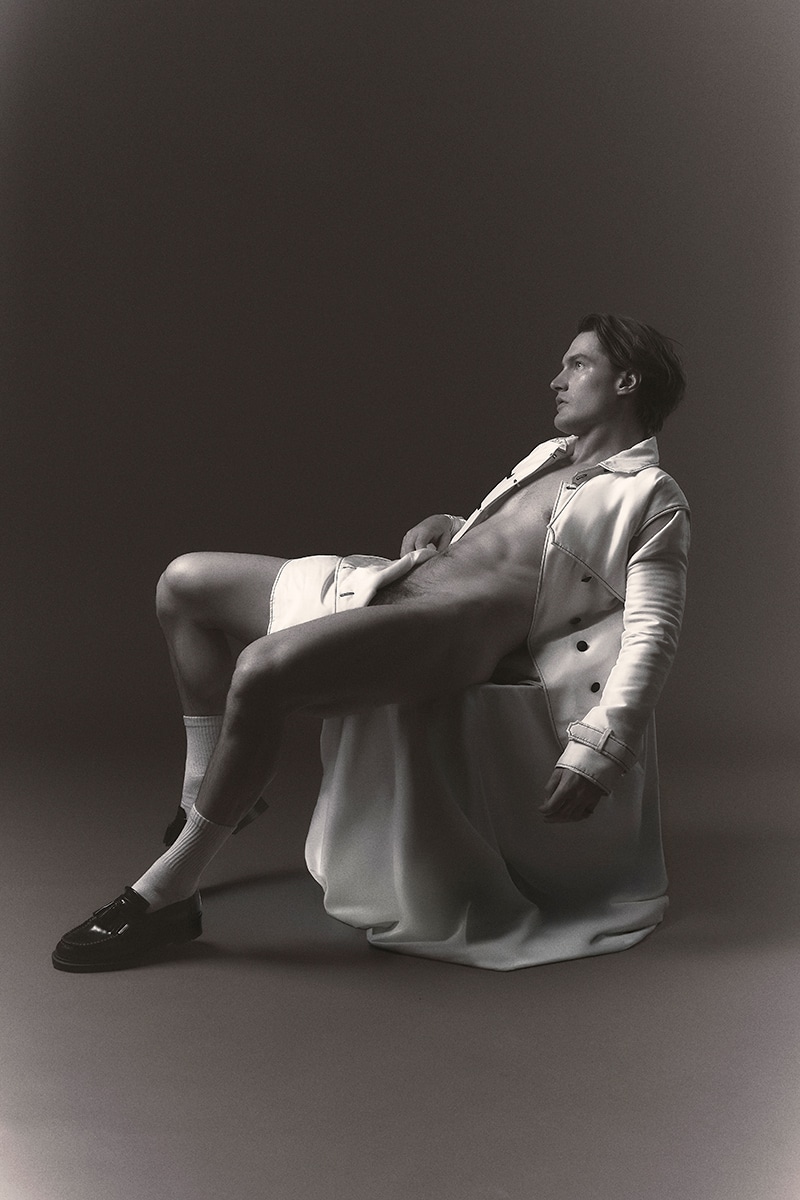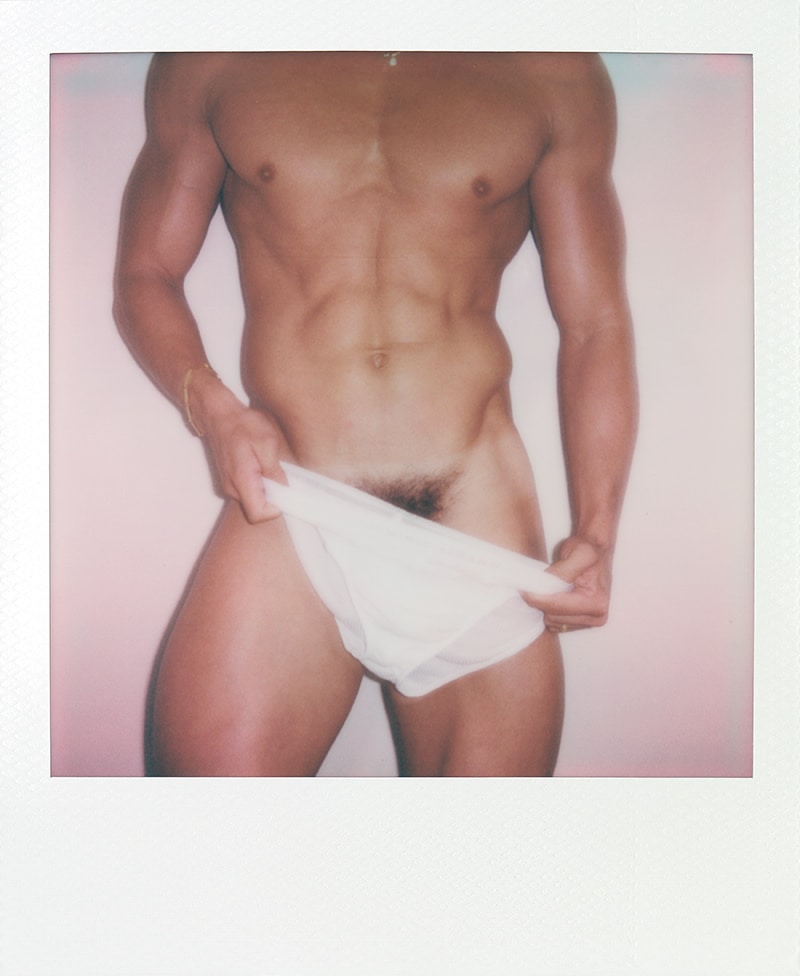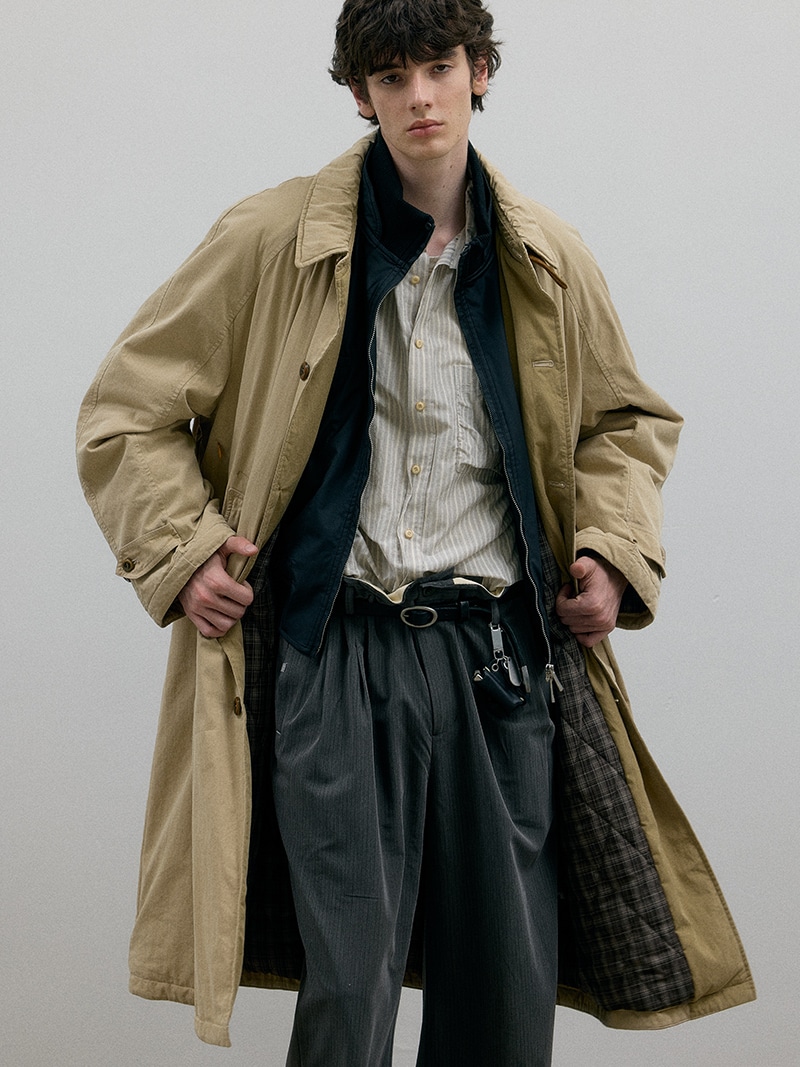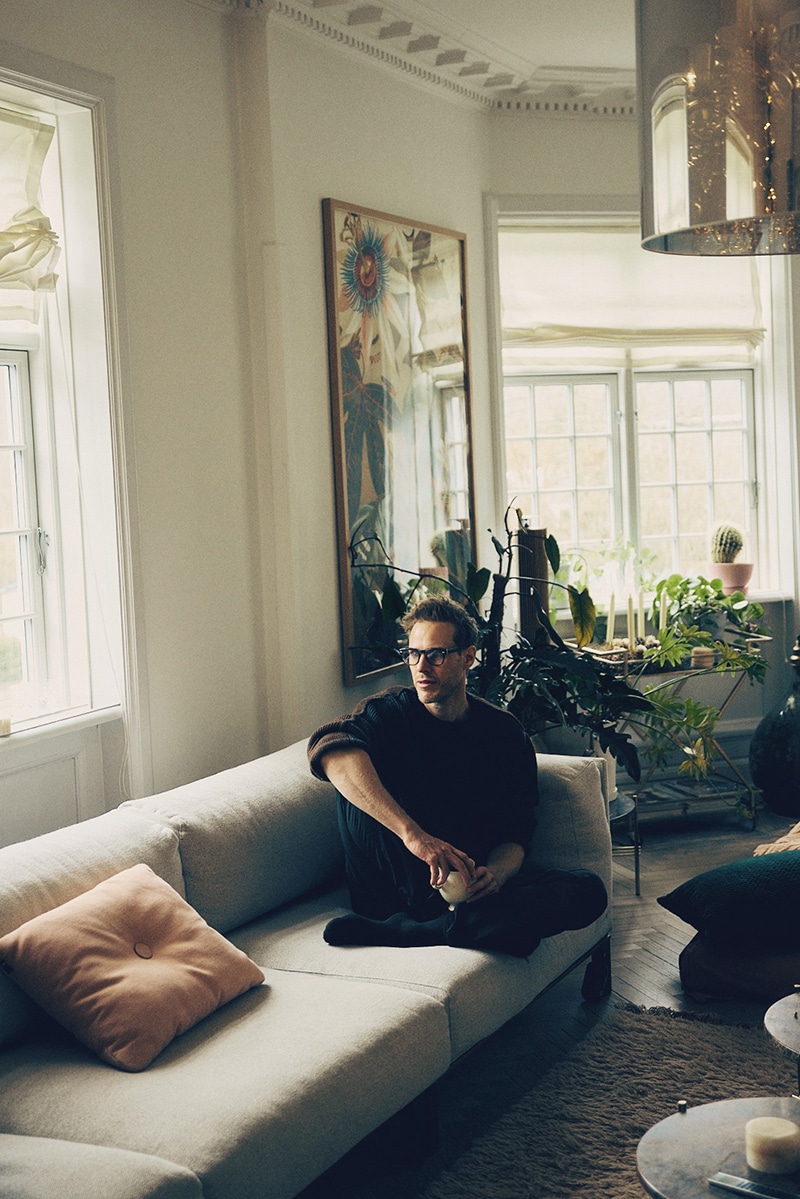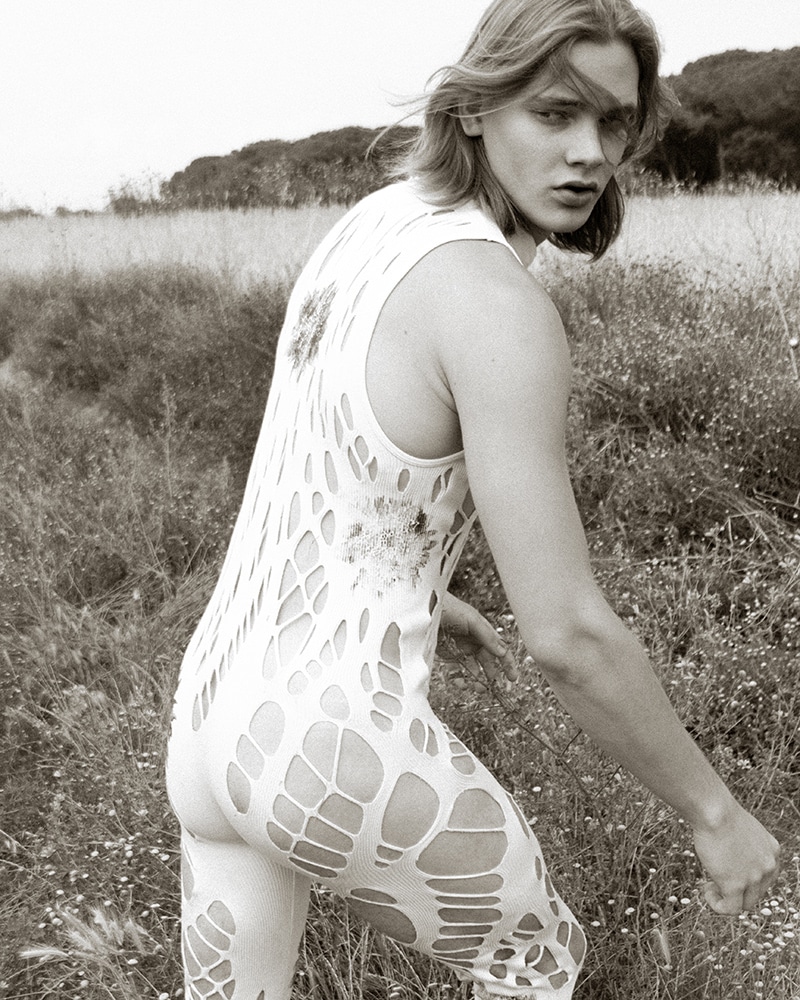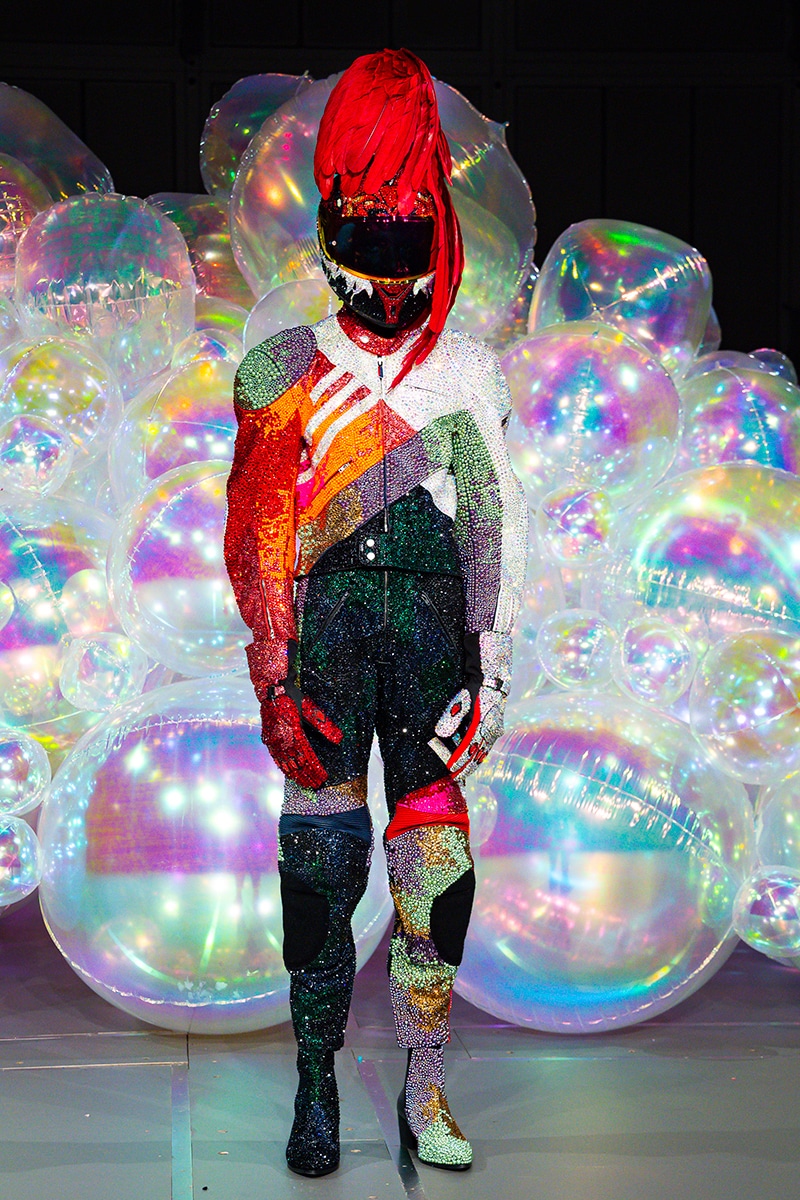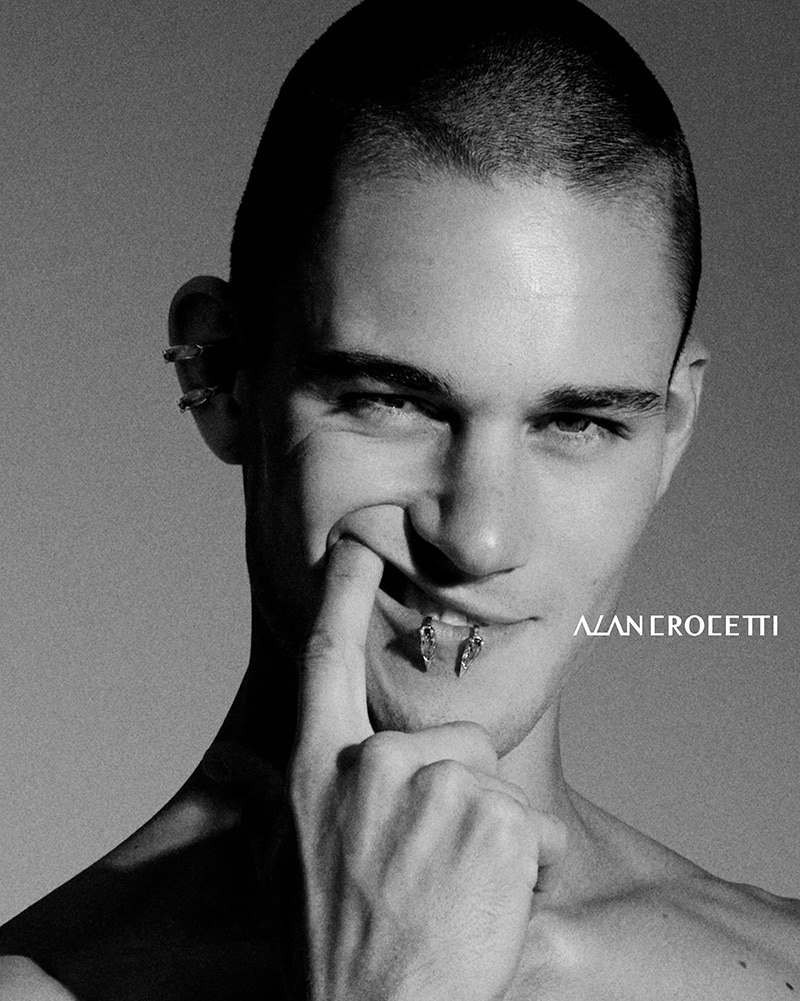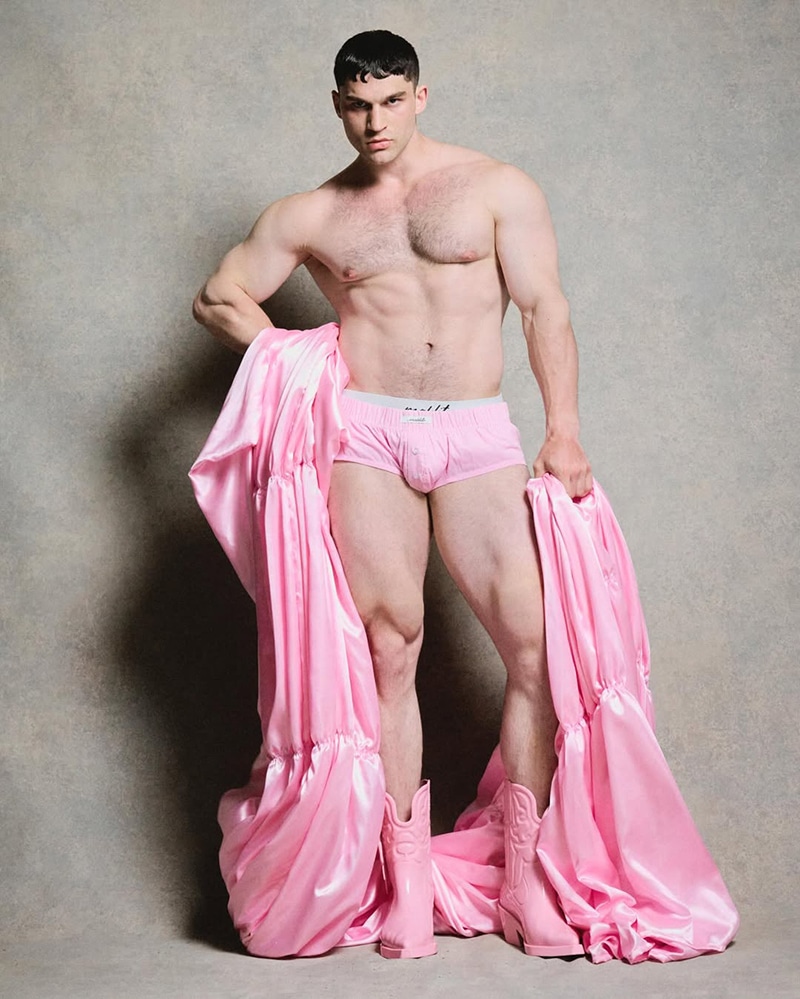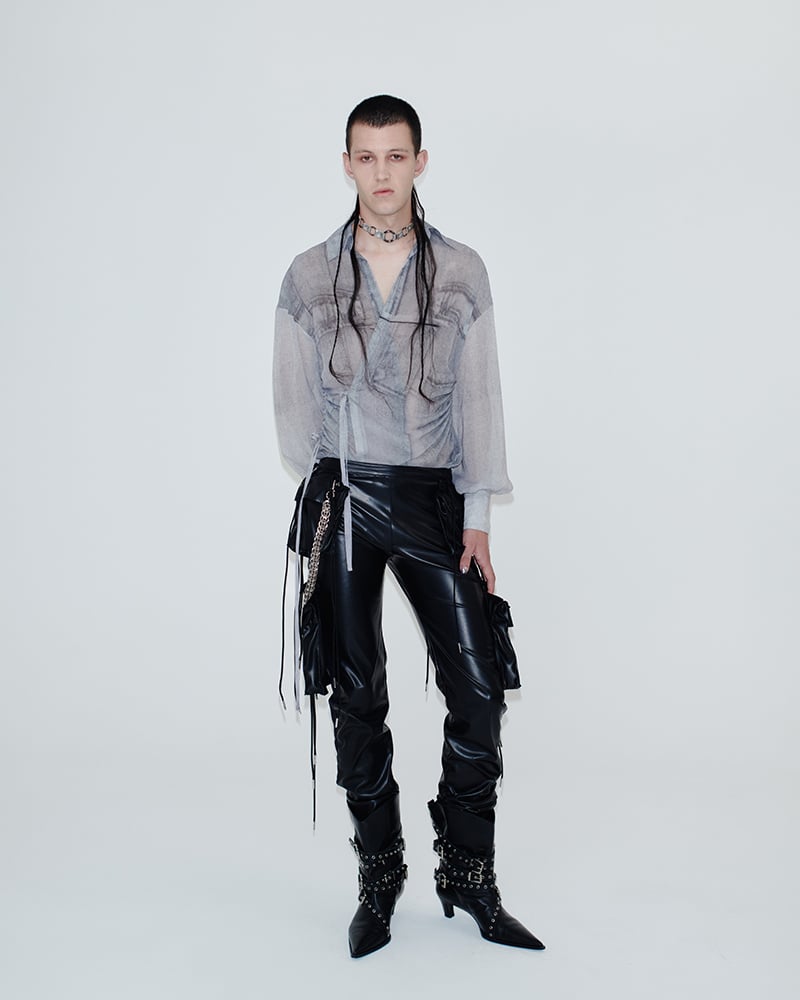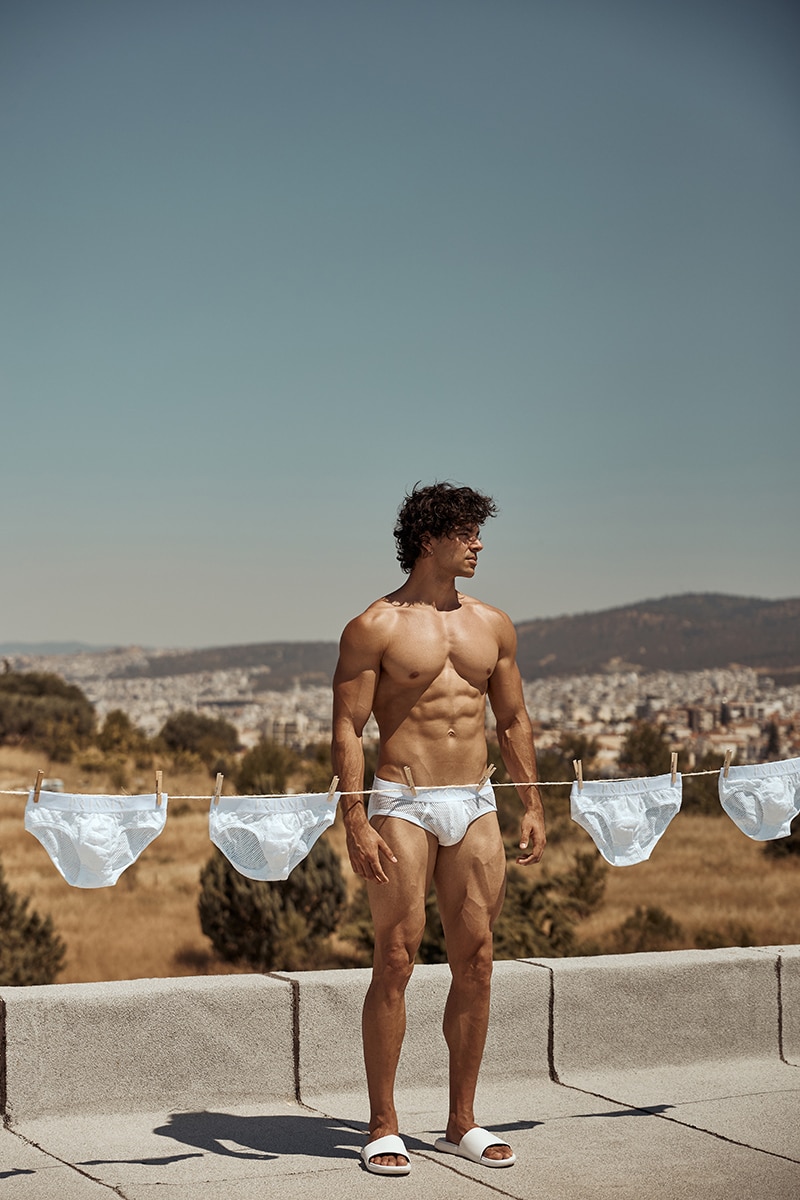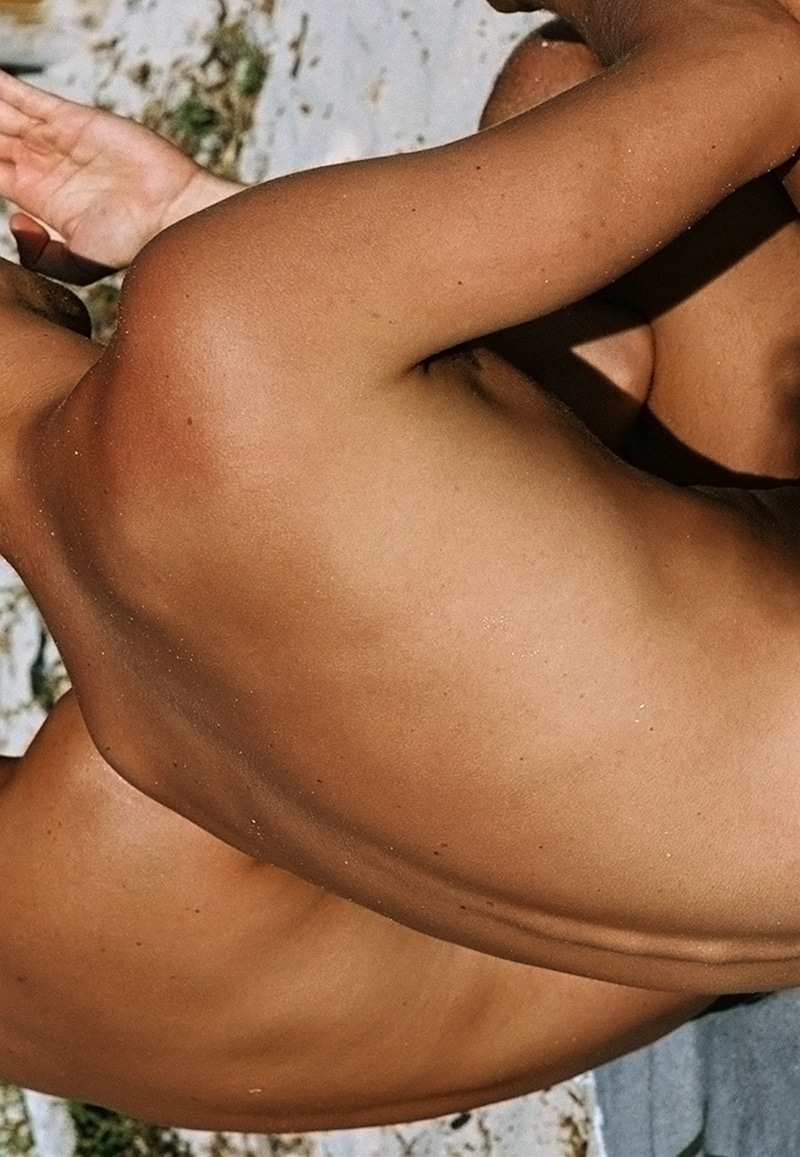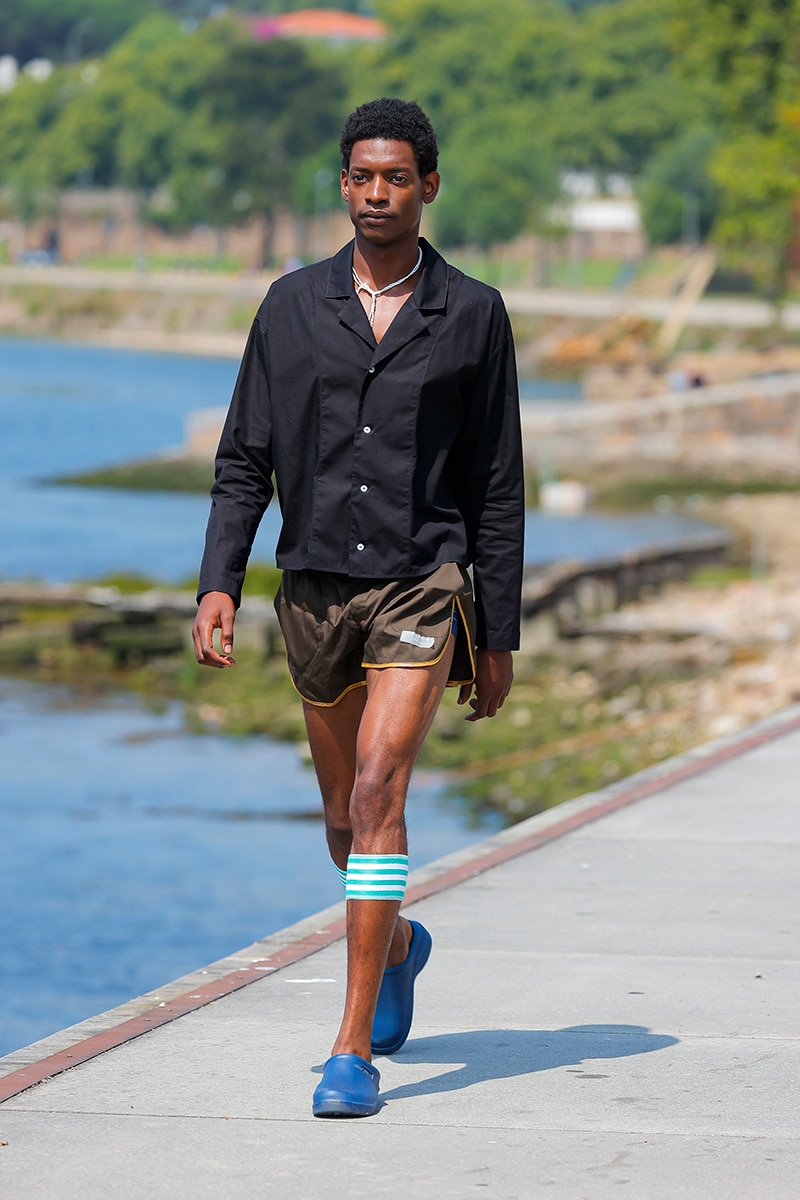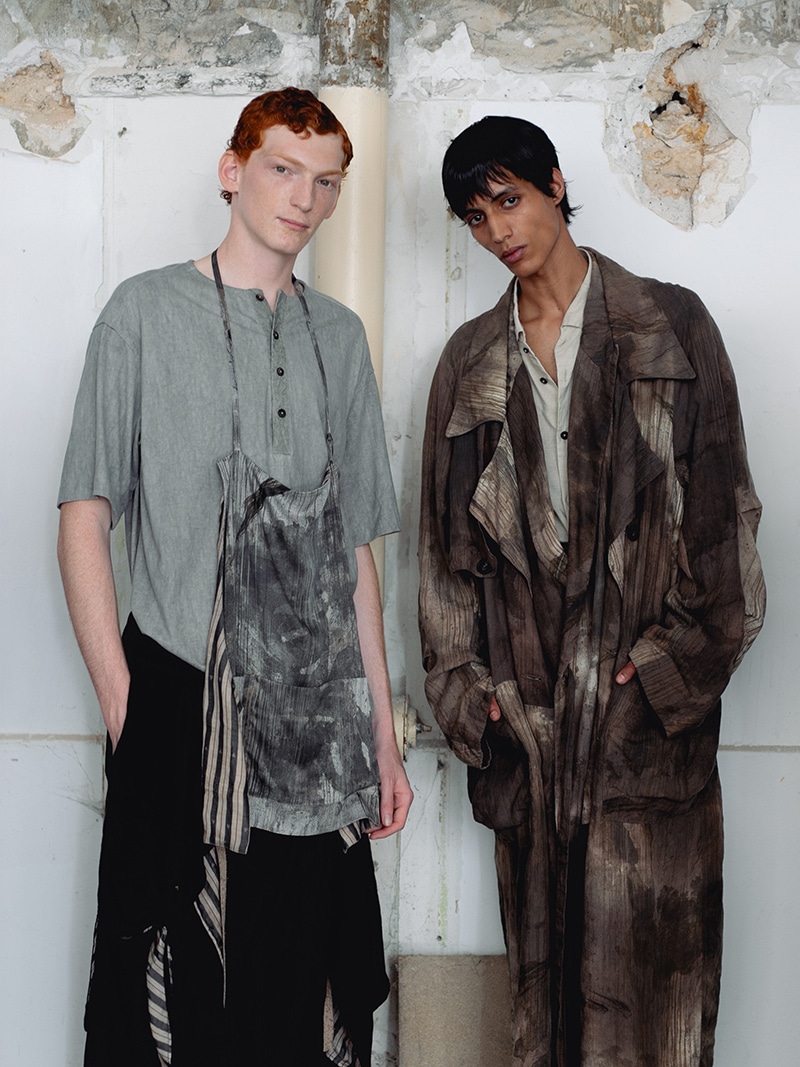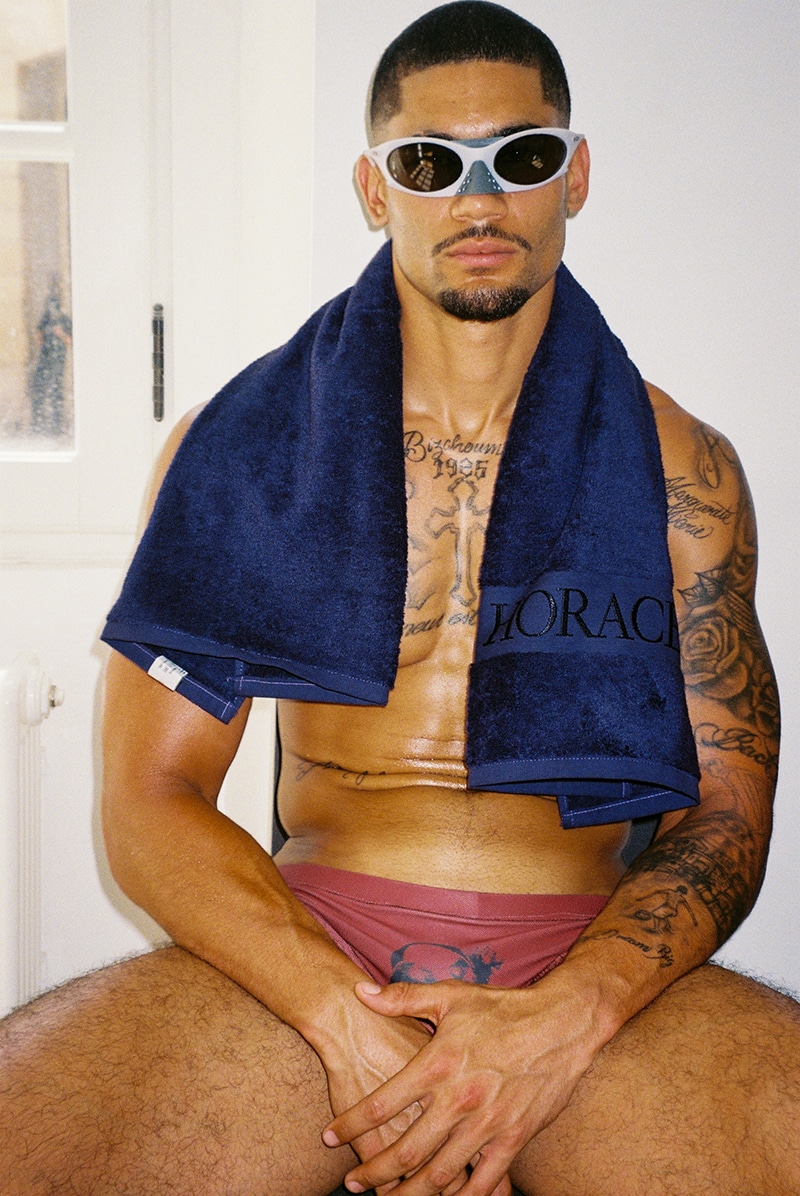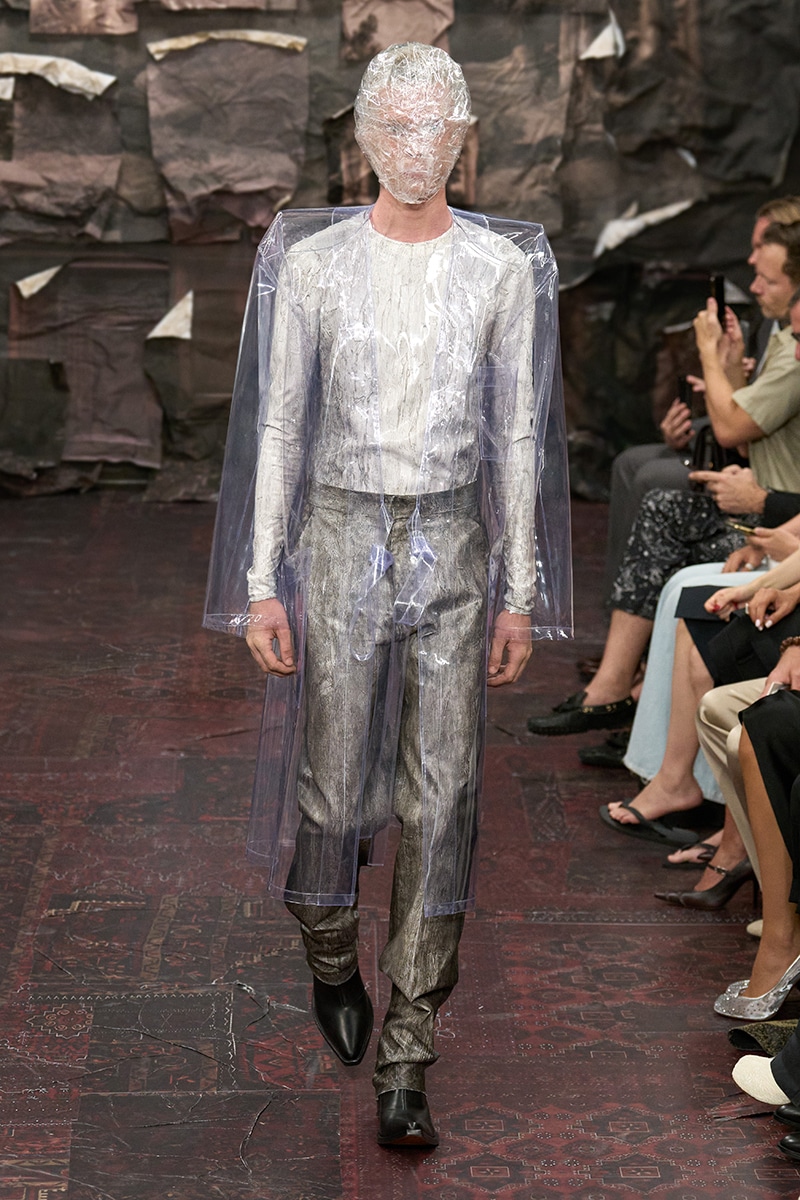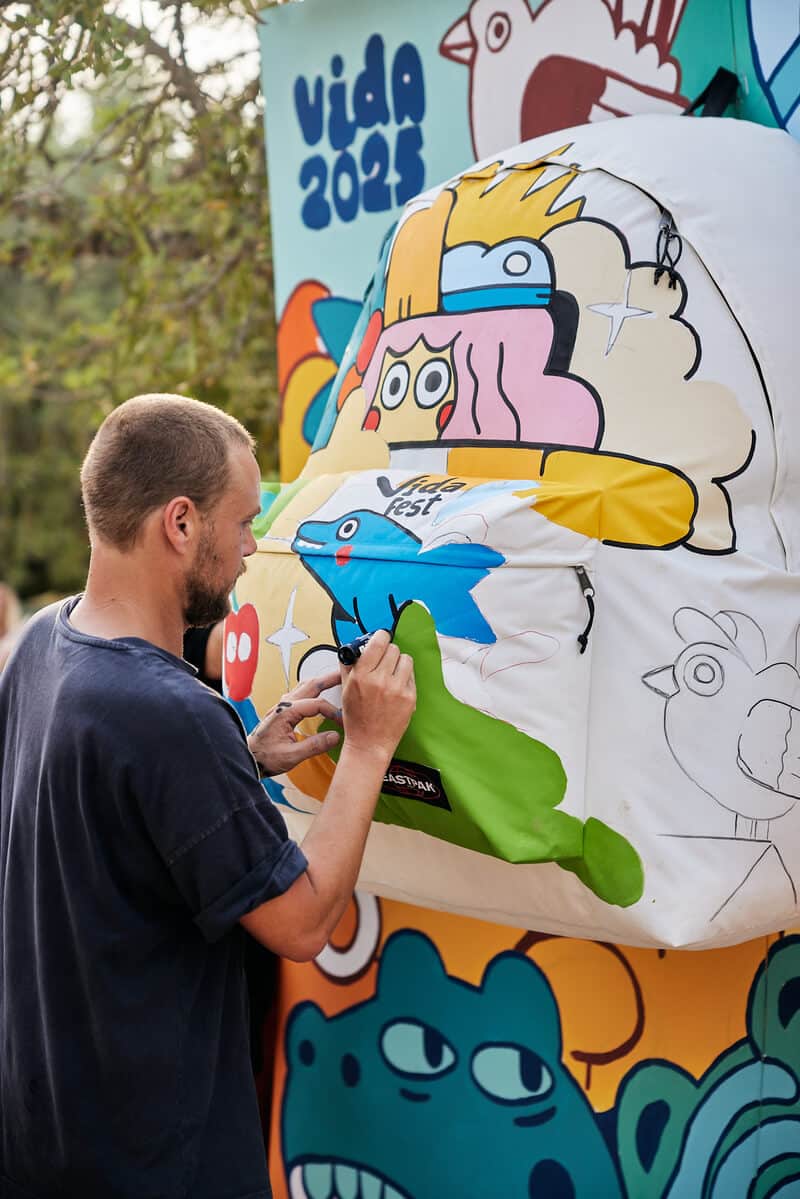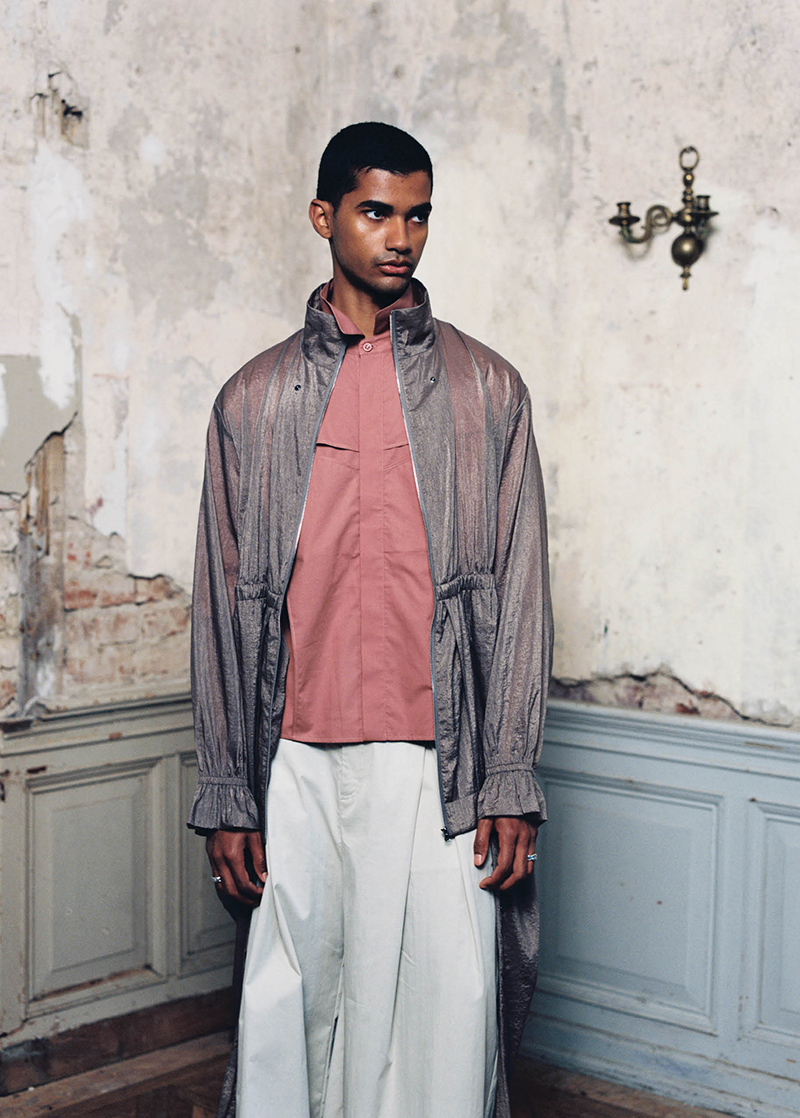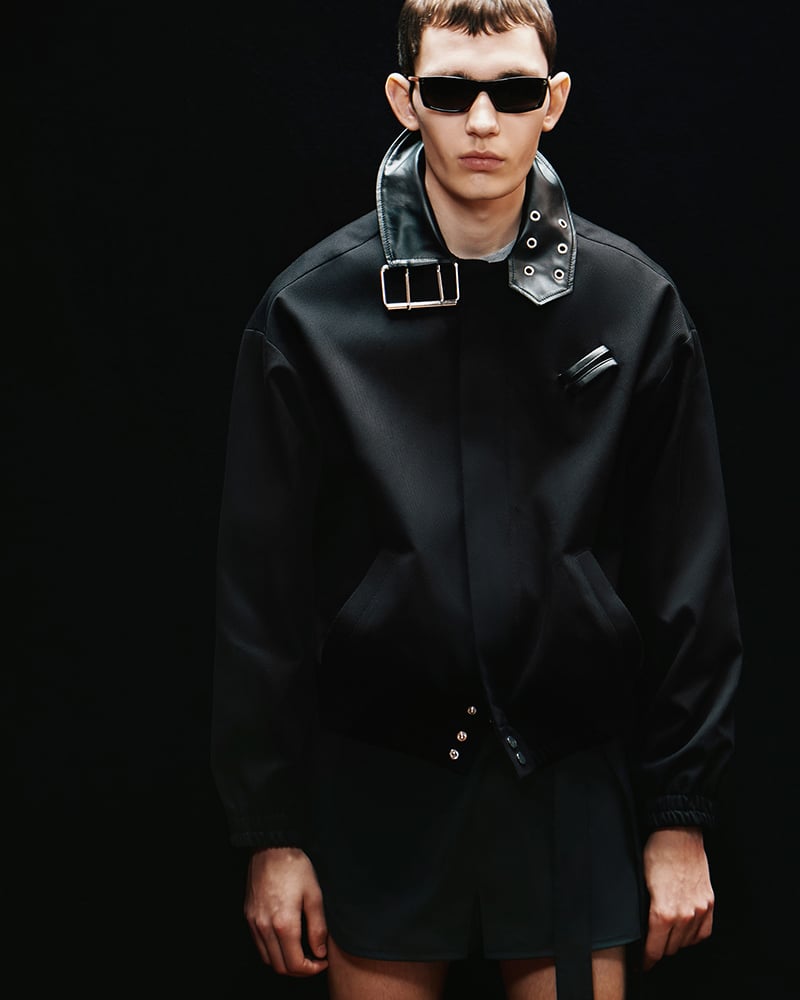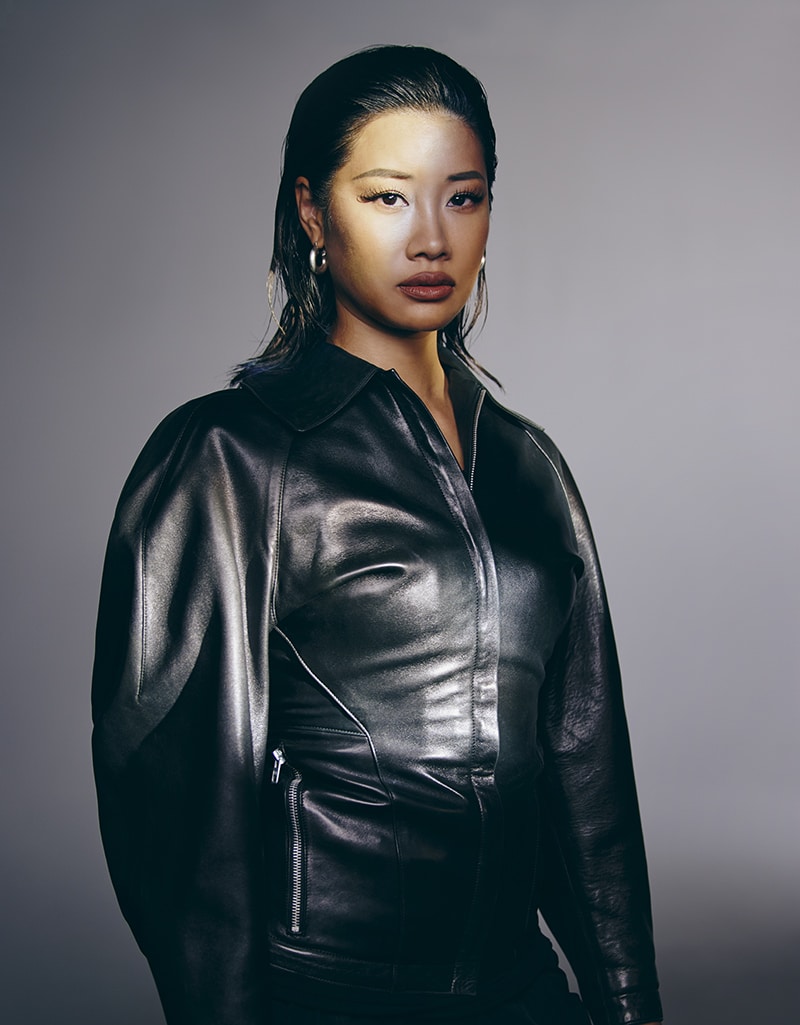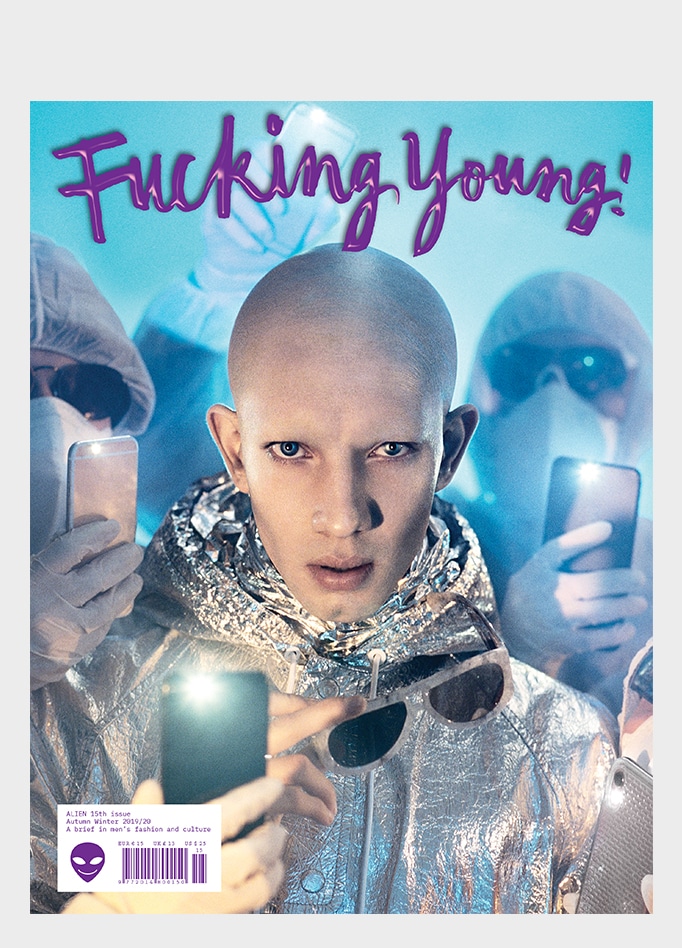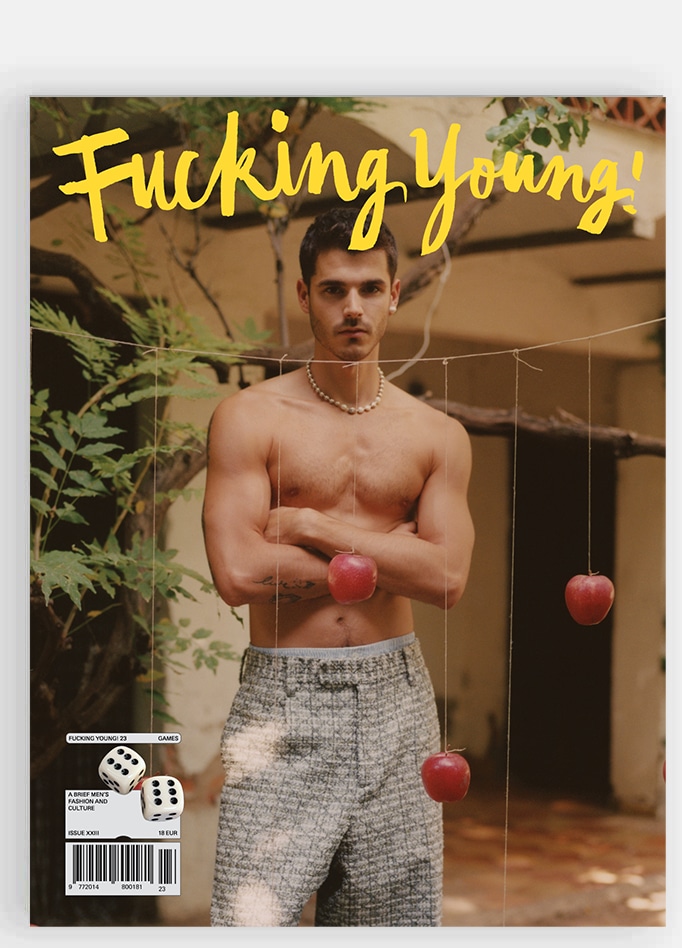
What are you?
I’m a director and a producer. I’ve directed multiple documentaries, and participated in the creation of various types of imagery in fashion, music, entertainment and contemporary art.
Yes, but what are you?
Well, I’m also an agent and an image architect. I represent several talents through my agency.
Yeah I get that, but what exactly are you?
I’m also the founder, creative director and editor in chief of a bookazine. We’ve collaborated with hundreds of emerging creatives so far. We’ve released two issues since 2020.
Forget about that, you know what I mean, tell me what you are.
I’m an aspiring writer and a recording artist in the making, both my poetry book and EP are coming out later this year. I’m actually proud of myself for finding the strength in me to finally step into my emotions, for embracing my sorrows and for sitting amongst them, for taking a traumatic experience and transforming it into art. What can I say, I’m a jill of all trades, mistress of all. I’m also a bit confused now, what more do you need me to be?
I need to know WHAT YOU ARE.
Fine then, I’m a woman.
All of the above is true of Réda Ait, she has accomplished in a few years what very few would aspire to in their entire lives. As long as she dwells on this earth, she’s creating opportunities. She has this rare ability to first recognize people with talent, then make it emerge from within, a drive to push them out of their comfort zone, to make them realize their beauty, their gift, and their splendor. “Collaboration is an act of survival” she says, as she never begins a project unless she knows her sisters will be right beside her. She insists on conversation mediating her art, and instead of hoarding the spotlight knowing full well it is something she deserves, she stood firm on dividing whatever visibility this project might bring between the people with whom she shares the most commendable of values. For that and much more, we owe her a great deal. She is, for lack of any words that can summarize her person, virtuous, generational, and a visionary. She endured and she overcame. She stumbled yet she continues to thrive. However, conversations similar to the one above seem to recur not only for her, but for all of this piece’s collaborators, as it is not only individuals that cross examine as such, it is also systems, governments, a set of standards, and a dominant culture.
My fellow reader, if you are one of the fortunate bunch who are unfamiliar with the interrogation that initiates this article, I advise you to keep reading, this might be a teachable moment. But if you are one of the unlucky few who are overfamiliar with conversations such as these, then, here is your palate cleanser.
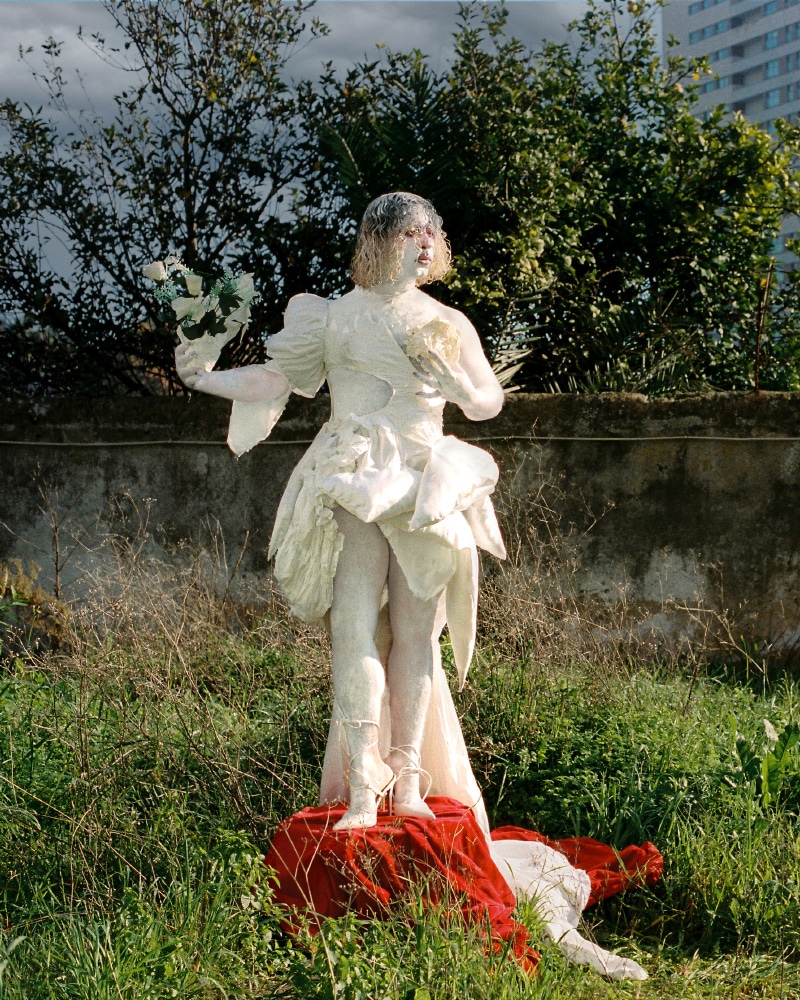
Réda Ait was born in Paris and is originally from North Africa, Algéria. She is a community manager & a multi-hyphenate. She is the founder of the bookazine DRAFT001 and the talent agency Thempresents. She directed the documentary The Real Housewives of Neukölln about a community of drag queens in Berlin, which is part of MUBI archives.
After Réda Ait left her mark all over Paris and Berlin, she decided to extend the home she constructed within her, and create a new home in Lisbon. She arrived right after the pandemic to what many would describe as a moderately safe environment. A city where the cultural climate was changing at a rapid pace, where spaces that allowed for personal liberties to be celebrated have started to grow their roots and blossom. Where one felt “secure” being themselves. Not to say that Lisbon suddenly became nirvana but numerous accounts from persons who came back after leaving for only a few years have detailed the state of awe they were in after witnessing what this city has become, a reality unimaginable to them prior. But to understand how we got to this point, we need to delve further back in time.
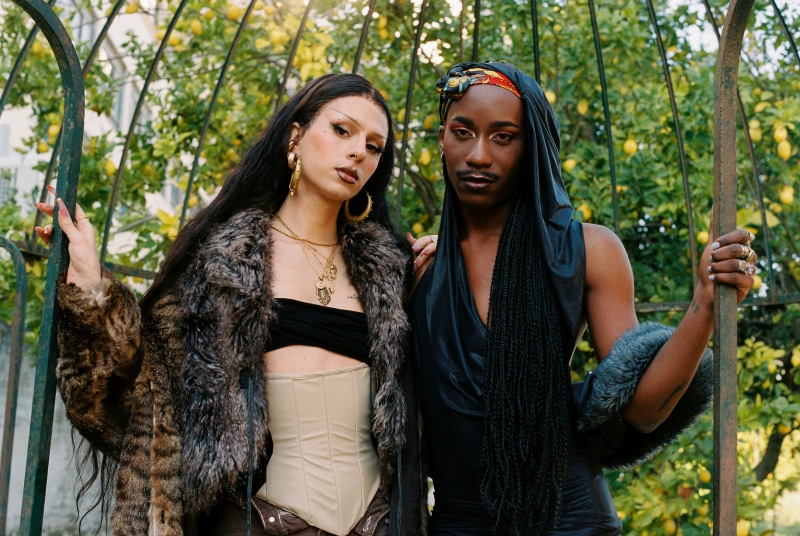
Maya Maiato (on the right) is a photographer and a mixed-media artist. She merges 3D design with themes of Afrofuturism and dystopian landscapes to create her art.
Every shift in history is the product of a domino effect of different events. However, every movement starts with the people, so in order for us to understand this switch, Fucking Young! and Draft001 invited a group of individuals who share the same ideological bond, who have been through different yet unifying circumstances, and who have to some extent, contributed to this implosion and continue to do so.
The setting is 2017, living conditions for most people around the world are worsening by the second. Tensions are rising over optics of identity. The masses’ attention is swayed towards culture wars in an effort to divert from an ever-increasing wealth gap and a definite environmental demise. Individuals who do not adhere to societal standards that stem from archaic religious moral codes are being scapegoated by political campaign strategists who lack any financial platforms. Fascism is making a return but this time around, it’s subtle.
A couple of years go by and things only get more dire, people are inhaling toxins and exhaling despair. The world is witnessing a stringent divide and more politicians are weaponizing marginalized bodies as they manifest the wishes of the one percent into reality. In Brazil, these dynamics are in full effect, and Bolsonaro had just been elected. Disparaged demographics are unwillingly fleeing what is becoming an increasingly violent environment, and Portugal is receiving many of them. But could that be the cause of Portugal’s change, could that be the reason why Portugal’s cultural composition and the spaces it now harbors are almost unrecognizable some five years later?
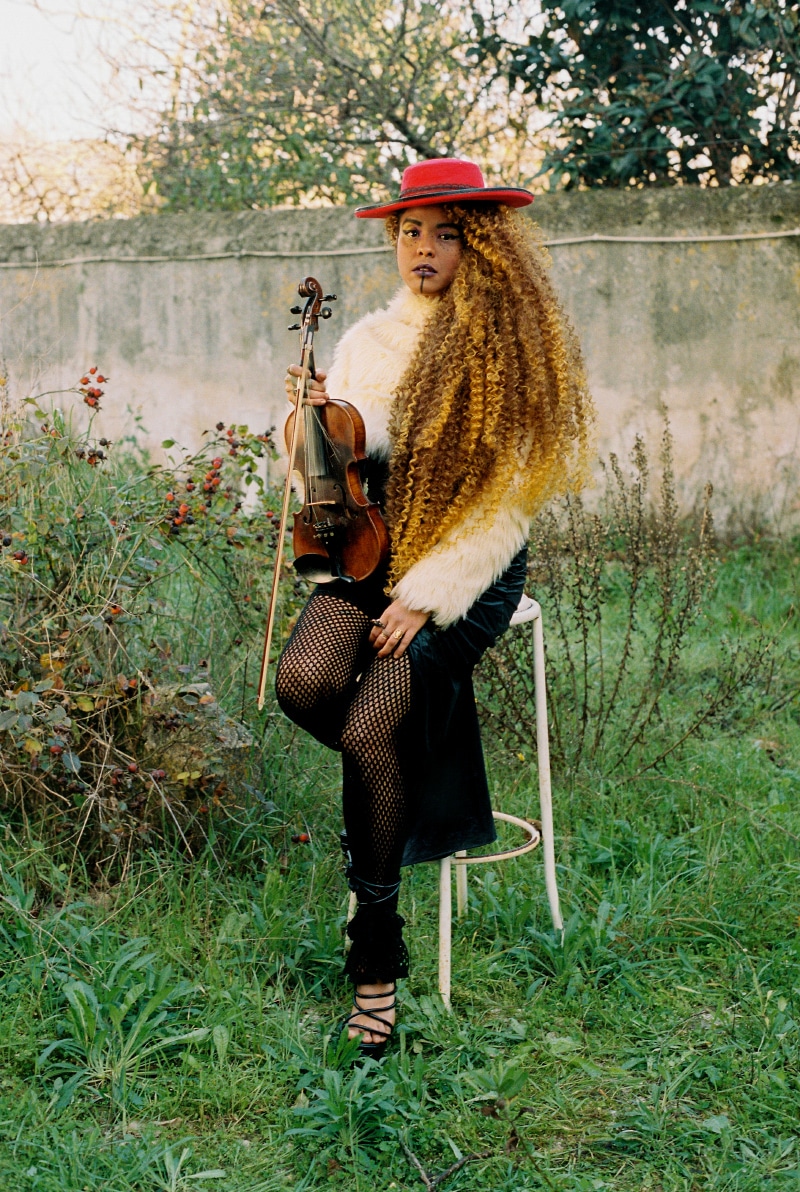
N△N▽ is a trained classical musician from Brazil. She is also a DJ, composer, and a writer. She is starting a choir to help trans people find their singing voice post-HRT.
N△N▽, offers the following insight: “It’s my perspective, because I came from this wave that was Bolsonaro in Brazil. There was a huge wave of queer Brazilians that came here and we came with blood in our eyes… We didn’t really want to leave our country, like it was never my dream to come live in Europe”. When asked about whether she thought that these events have caused portuguese culture to witness some change, she replied by saying:
“not the root cause of it, but I think that we managed to make some kind of protocol for the reception and organization of immigrants in general… I think that it’s because a lot of people came here not happy, you know, really eager to make things better…”.
All of our collaborators today have agreed that they owe some of the freedoms they enjoy greatly to initiations from immigrants and POCs. The same can be observed in different movements throughout history. The fresh perspective that N△N▽ offers is that these immigrant communities have created a mechanism that facilitates the reception of individuals from other areas that are hostile. According to her, said organizing that emanated from altruistic motives has created the foundation of what would later become a “community” that positions itself both philosophically and politically as a unified front.

Gui Oliveira comes from the outskirts of São Paulo. He is a hair designer for fashion and advertising. He would like to open a school for people with the same background as him to pass on his knowledge.
It’s 2019 and the situation has only gotten worse. People around the globe seem to be in a state of division. Reports every other day show new conflict zones, And the people are enraged. U.N secretary-general Antonio Guterres appears before the world press and utters the following statement: “We are witnessing a wave of demonstrations around the world, from the Middle East, to Latin America and the Caribbean, from Europe to Africa, to Asia. It is clear that there is a growing deficit of trust between people and political establishments, and rising threats to the social contracts“. The tensions are culminating and the world order seems to be at the brink of collapse. Half of the world population is engulfed in daily means of survival and the other half wishes to watch it all burn to the ground. The mirage of hope is being replaced by a haze of misery, and if as though things could possibly get any more grim, on the day after Christmas, the first case of Covid-19 was reported. At first, the virus was not taken seriously by most people, but as soon as lives began to expire more than cemeteries could stretch, people on every side of the earth found themselves in an unprecedented predicament, a global pandemic. A tragedy that would render most people’s collective awareness changed forever.

SoundPreta, founder of Quenga is a DJ. She has a background in journalism and a master’s in cultural management. She’s currently recording several tracks that will come out by the end of the year, a project she’s taking on with five different artists. She is also curating exhibitions working on sound and imagery.
At the beginning of 2020, whilst everyone was in a state of confusion, George Floyd was brutally murdered by the police, and the utter display of horror that brought about his demise reached nearly every single person sheltering in their home. Protests broke out like wildfire and people were unified more than ever an event that reignited their understanding of systemic injustices. Traditional media could no longer conceal the flaws of the systems it was desperately trying to protect, because the atrocity was not only unjustifiable, but also undeniable.
In Portugal, on the other side of the planet, people in confinement having stood witness to these events, and subject to their opinions on the matter being scrutinized online, learned -even sometimes for self serving reasons- that they no longer wanted to be associated with systems that created the capacity for such transgressions. It’s almost as thought most people became more afraid of being perceived as a racist than actually being one. And then there were few, who understood their own oppression as interlinked with that of others, for whom the reality that the same systems that keep them subjugated rely on identical tactics to keep others repressed was clearer than ever.
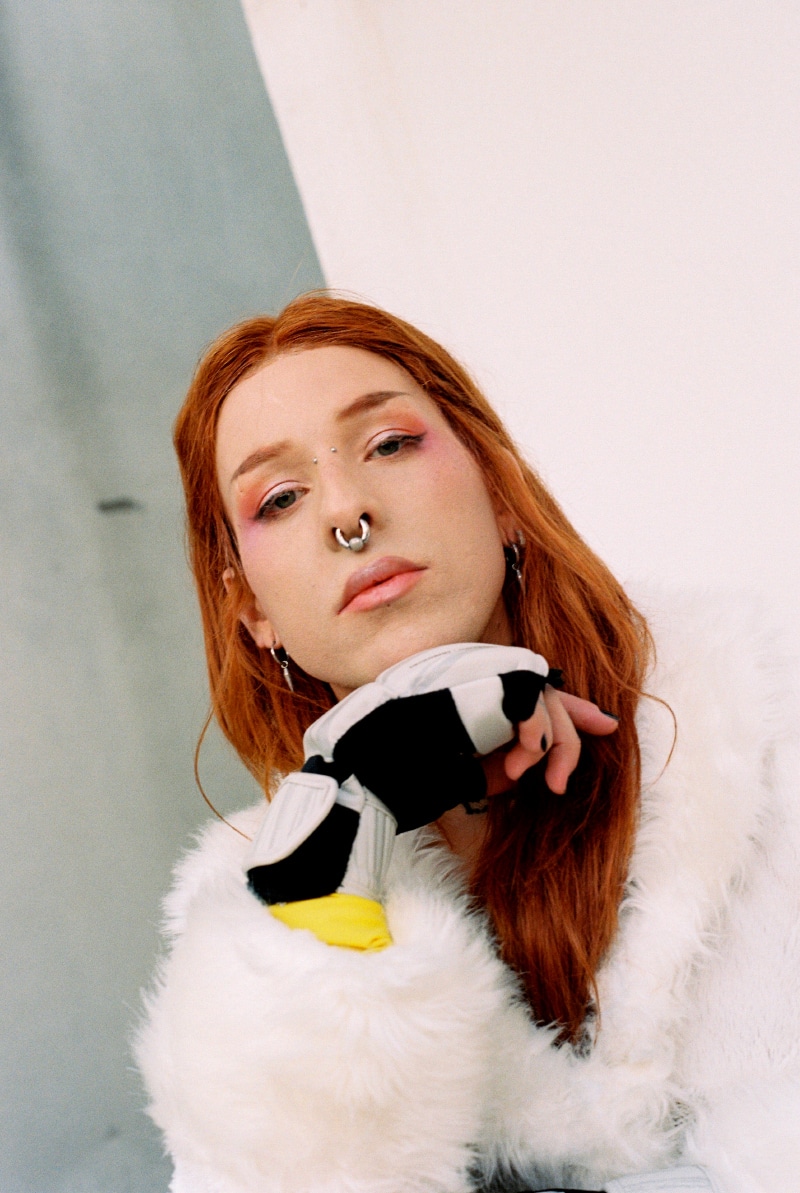
Stacy Lyan is a founding member of MAYTHEY, an important music collective in Lisbon. She is a DJ that goes by the alias “Ecstasya”. She is also a sound producer and is excited that more people are beginning to enjoy her work in Portugal.
Globalization and access to information through social media have been contributing factors in reforming Portuguese culture according to Stacy Lyan, she says: “It’s very difficult to manipulate and censor”, her opinion is that it is becoming increasingly tasking for institutions to either silence or distort information, and that has helped. In no way does she believe that Portugal is reformed, but most of our collaborators agree that some change, small as it may be, has been achieved.
It’s May of 2021 and the confinement has finally been lifted, the people with discriminatory views are a bit more ashamed to display them publicly, and the people who are on the bitter end of said discrimination are eager to live. They pander to the whims of a rigid society no longer and they all collectively say “FUCK IT”. Consequently, new spaces start to appear where people are at ease with who they are. Intentional spaces such as Planeta Manas, Outra Cena and Arroz Estudios are where most people want to be. Organizations (founded by the bravest of people) such as ANEMONA and CASA T and many more are doing the legwork and fighting for marginalized bodies to lead easier lives. A ballroom scene (in which Malia Imaan from the House of Bodega, creative partner of Réda Ait for this shoot) is finding its light. A vibrant, unapologetic, carefree, community is born.

Malia Imaan is a Black trans model, a dancer, and an actress. She belongs to the pioneering movement of ballroom in Portugal. She is a member of The House of Bodega.
Now it’s 2023, and an important question begs itself:
What are they?
They are people who share a similar experience of not fitting into what culture requires them to be, which allows them to come to a greater understanding of both themselves and of the human ordeal. N△N▽, for instance, has this to say: “In a personal sense, I think it has more to do with movement. You’re never doubting yourself, but you’re still aware that your identity has to move“. It is a profound understanding of the human experience that creates leeway for people to exist in their indefinite form, that doesn’t constrain them to a singular identity over their entire life span. There are sets of rules set by systems of governance that demand people to exist in ways society deems fit, our collaborators refuse to adhere to that absurd framework. It’s not to say that they are seeking change, although they would be in their rights to do so, but it is to say that they are willing to embrace it when it comes as a matter of course. On the subject, Stacy Lyan offers the following quote: “We should just be able to get rid of this essentialist view about everything, and experiment and just go with the flow. I guess people do not understand that what is most important here is consent. So when you are forced to change, when people try to convert you to something, of course, it’s not going to work because it doesn’t come from you. It doesn’t come naturally“.
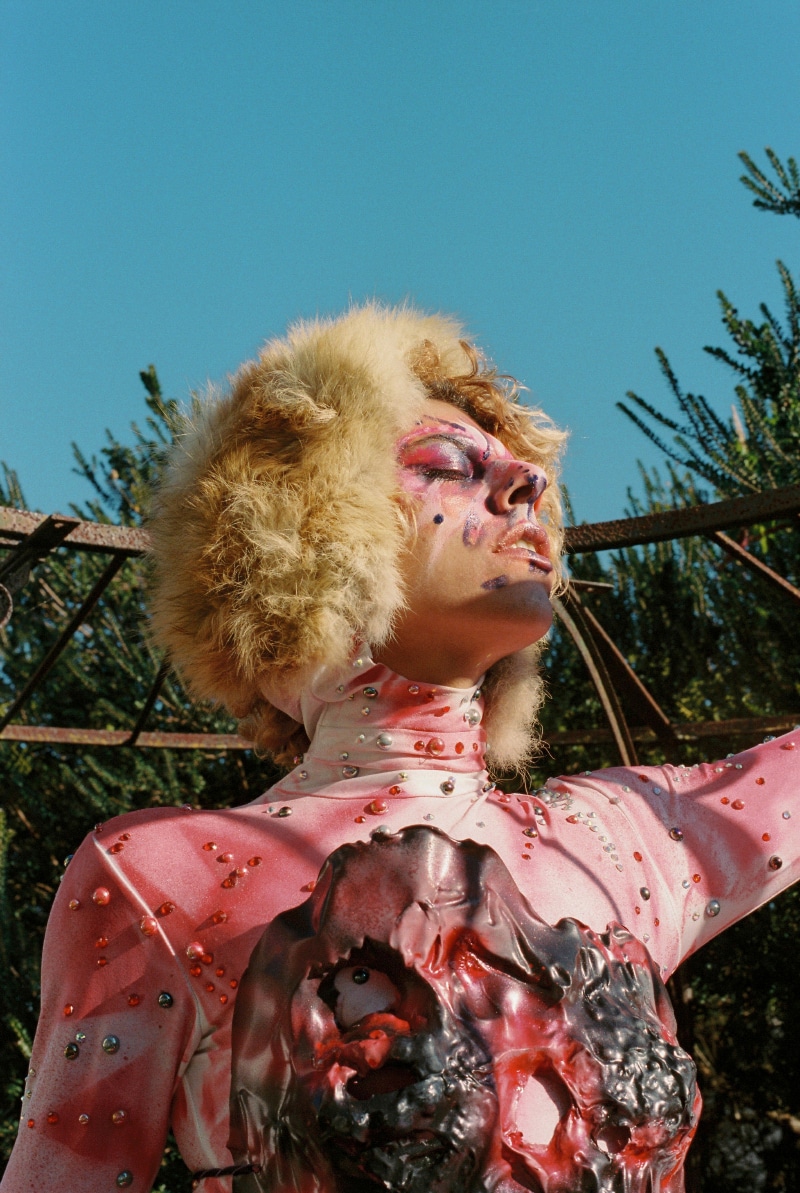
ZAYA is an artist, community organizer and a legendary figure in Lisbon. She debuts her podcast this year. She wishes to go back to Alentejo where she originates and perform for the youth so that they know that it is possible to both be yourself and be happy.
Yes, but what are they?
They are people who will fight for your right to be free, for your oppression to cease and they are willing to sacrifice themselves in the process. ZAYA says the following: “Politically, my body is my essence, it creates a discussion, it creates a conversation, and I’m here to provide the questioning. It’s not about the answers, it’s about how we’re actively fighting to be free“. ZAYA understands the toll that follows existing in defiance of the hegemony of societal standards, yet she provides herself as a vessel to at least create a discourse around how the world is supposed to operate, and perhaps on how there might be a different way in which it can. Jade Aura offers a similar perspective: “We’re almost never allowed to feel confident about ourselves and our own identity, so I feel like when we do, that’s such a punk statement In any society. That, in itself, is a political statement“.

Jade Aura is a fashion designer and an artist. She is currently working on a short film on the self-portrait of her mind. She also belongs to the house of Wang Portugal. Jade Aura and Vénus Guerra designed most of the pieces for this production.
They are people who see everyone as fighting the same fight, they do not prioritize their emancipation over yours, they stand in unity because they understand that most of humanity is oppressed under capitalism. They see it as counter productive to try and separate their struggle from yours. Your prosperity is also theirs. And so long as freedom is not achieved for all, they will not consider themselves free. Vénus Guerra gives us this very powerful statement on the matter: “At least in the circles and spaces around me, people are focused on basic conditions and not just on what optics of identity are. They focus on labor causes as well. They don’t detach the queer movement from the labor movement and I feel like we can’t really talk about queer oppression without really talking about black oppression, oppression for example of Palestine, Congo“.
They are people who are simply trying to survive, but who will go above and beyond to ensure that they do it in unison. “We definitely are stronger when we are all together. So I feel like it’s through recognising the intersections of our experiences, that we can better help each other in this collective fight“, says Jade Aura to outline how togetherness and empathy are important to any meaningful struggle. Réda Ait corroborates her claim by stating the following: “I survive right now, as of the present, I survive and I survived what I have been through, because of the people around me“.
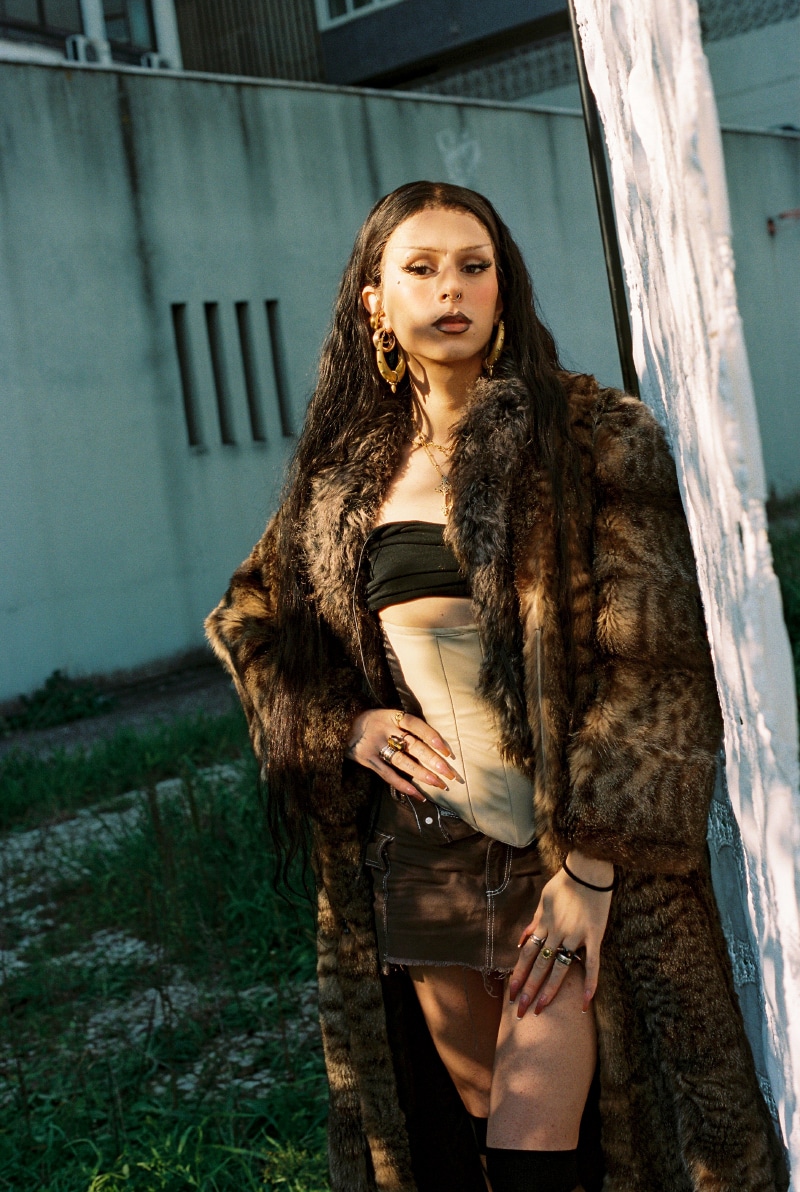
Vénus Guerra is an artist, designer and a poet. She debuts her first collection in 2024 which will involve an exhibit, sculptures, and poetry. She hopes it will bring back some of the drama the fashion industry needs. Vénus Guerra and Jade Aura designed most of the pieces for this production.
Yeah I get that, but what exactly are they?
They are people who present in ways the world frowns upon. They are also people who have no other choice than to find comfort and safety in the norm, but who share a vision of a globalized landscape where said standards no longer dictate their daily existence. They have experienced a system that ruthlessly disenfranchised them and they are steadfast on thwarting its dominance. “Even if you don’t want to resist, you have to resist. You should want to resist, when it’s your land, when it’s yourself, it is something that you cannot abandon, that you don’t want to abandon, it is yours“, says Gil Ubaldo to explain that resisting is not always the obvious option, nor it is the safest, and sometimes it’s not even an option, yet he believes that one should find ways in which they can push back.
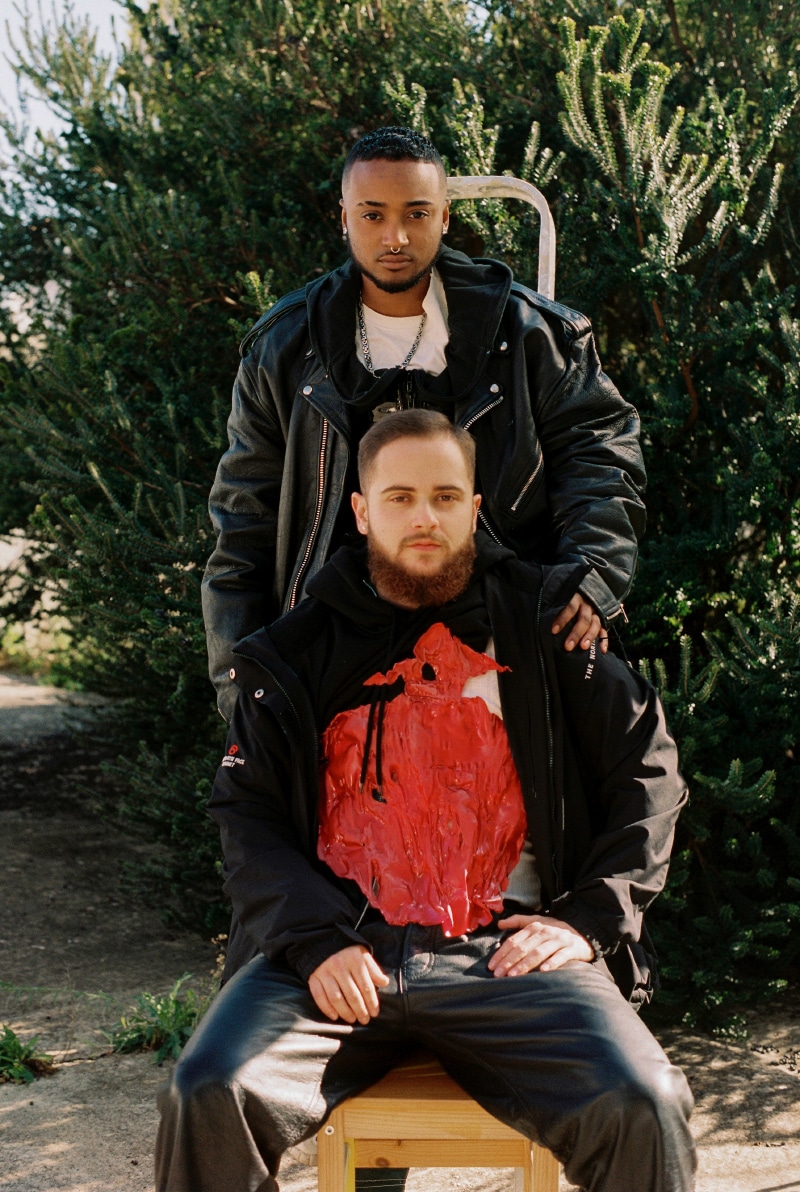
Gil Ubaldo (below) is an important figure in the ballroom scene in Lisbon, he is part of The Iconic House of Miyake-Mugler and Portuguese prince of The Kiki House of Bodega. He is a trans man, organizing for trans and queer liberation, through pioneering the queer rights march in his hometown Caldas da Rainha and trans visibility marches in Lisbon.
Daniel Dinis (above) loves to cook, he hopes that one day he can open his own restaurant. He also models and aspires to be a legend on the ballroom floor.
They are people who think that change is taking way too long, who observe the systems they operate under fail them every day. Malia Imaan speaks the upcoming words on the subject: “This rhythm is too slow for the way things are going, the bad is outweighing the good“. They are also focused on daily measures of survival, and are only able to break down barriers one step at a time. Fayxka gives the following statement when asked if they would like to see representation in legislative bodies: “You don’t see trans people in a café, let alone in parliament, these are very inconceivable places“. That goes to say that representation and visibility are not necessarily things they are trying to achieve, it might be a useful tool but it does not change the reality of the systems that perpetuate their oppression. Jade Aura sums it up perfectly in this quote: “It’s not really the most fair thing to the particularity of our experiences for us to strive to be in circles that are fundamentally against our existence. The system is against us from the jump, so why should it be our mission to be part of a system that is against us. I’m against the system. And even when we are included, it’s almost as if we’re tokenized, and our experiences shouldn’t be tokenized“.
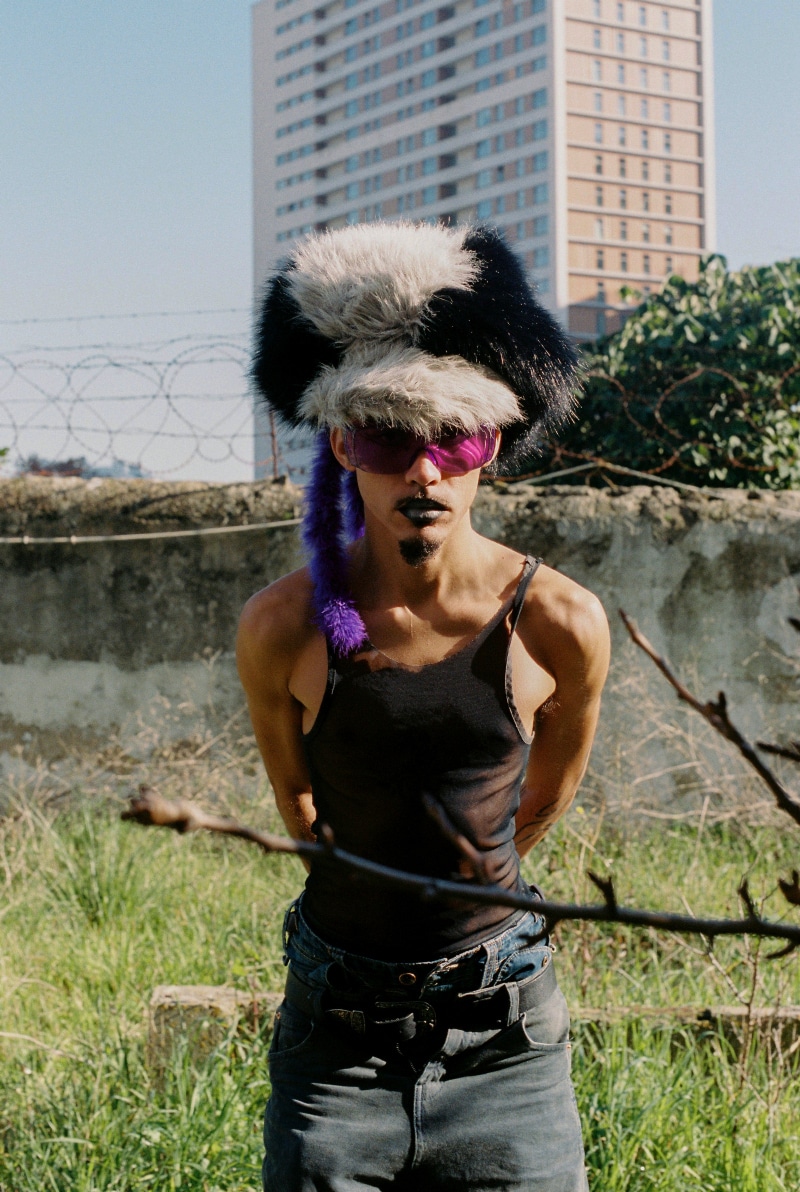
Fayxka is a DJ, 3D & AI artist, and a community organizer from Brazil. Along with several individuals, They runs Casa T, an organization that houses trans immigrants and provides them a shelter until they can land on their feet.
Forget about that, you know what I mean, tell me what they are.
They are people with love, empathy, and ambition. They are artists, musicians, hair stylists, dancers and designers. They are driven, talented, and beautiful. They are demonized, weaponized and scrutinized yet they are resilient, defiant and persistent. They are creators, creatives and creations. They are fabulous, extravagant and free.
They don’t look forward to a future because they are it, and inspired is too feeble a word to describe what it feels like to be in their presence.
I need to know WHAT THEY ARE.
They are the revolution, that is who they are.
The identities disclosed above is how our collaborators chose to be represented for this article, they are valid and they must be respected. “Contradiction” says Bell Hooks, “is the stuff of revolutionary struggle. The point is not to deny the reality of contradiction, but to utilize the space of contradiction to come to a greater understanding.”
CREDITS
Creative Direction: Réda Ait & Malia Imaan
Editor: Adriano Batista
Photography: Isabela Marques
Photography assistant: Rita Ruivo
Videographer/Director: Pedro Antunes
Styling & custom-made outfits: Jade Aura & Vénus Guerra
Make-up: Jade Aura & Vénus Guerra
Talent casting: Malia Imaan & Réda Ait
Writer, researcher, interviewer: H.L
Talents: Daniel Dinis, Fayxka, Gil Ubaldo, Gui Oliveira, Jade Aura, SoundPreta, Malia Imaan, Maya Maiato, N△N▽, Réda Ait, Stacy Lyan, Vénus Guerra, ZAYA
Special thanks to Na Esquina
Note: If you would like to contribute to the revolution, you can help set ZAYA free of debt, Sta’s Gender-Affirming Care, and the regularization and transition of Ibtissem.
